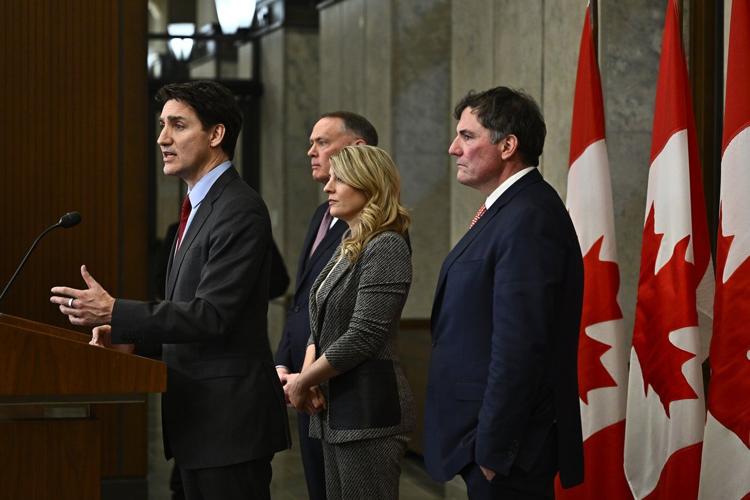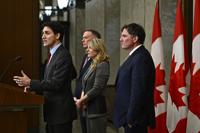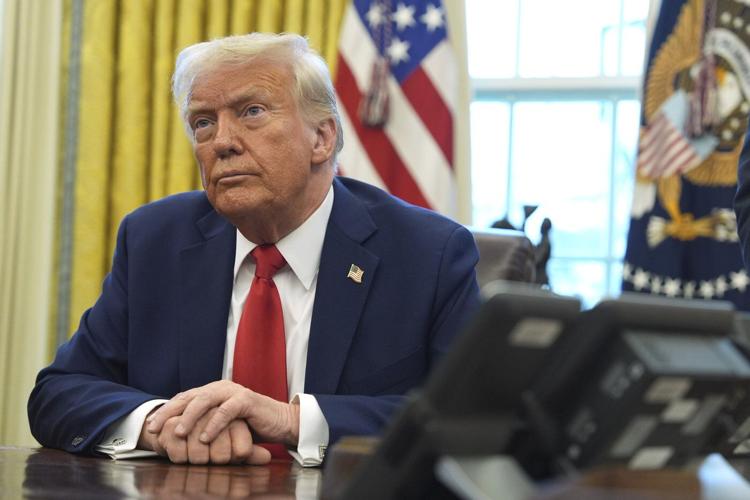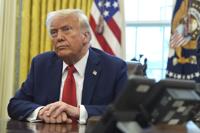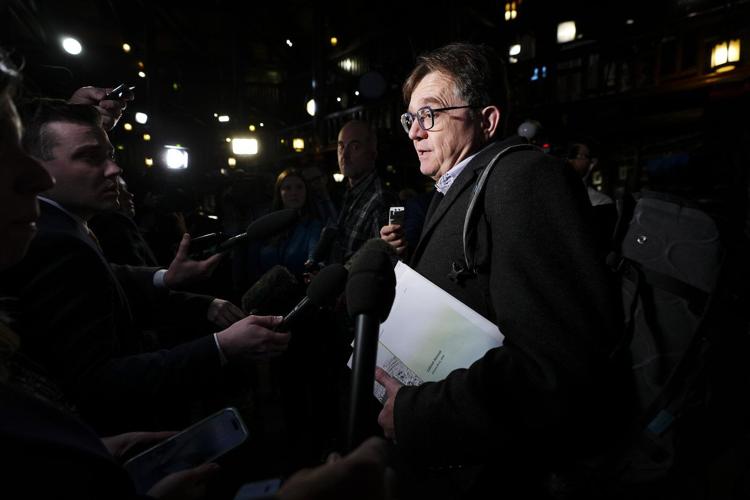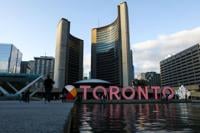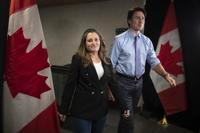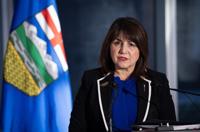WASHINGTON - Key cabinet ministers returned to Washington Tuesday to keep pressing Canada's economic case as a month-long pause on Donald Trump's tariff threat has done little to ease Canada's concerns.
"I do think there are opportunities for conversations to enable us actually to move away from the conversation about tariffs," Energy and Natural Resources Minister Jonathan Wilkinson said Tuesday.
Wilkinson is making the case among Republicans for a Canada-U. S. energy and resource alliance — part of an effort to align with U.S. President Donald Trump's goal of making America energy dominant.
He is looking to meet with newly appointed Interior Secretary Doug Burgum — the former North Dakota governor now in charge of Trump's energy agenda — and other Republicans in Washington this week.
The temporary tariff reprieve has prevented — at least until March 4 — a continental trade war that economists on both sides of the border warned would raise prices.
Industry Minister François-Philippe Champagne and Defence Minister Bill Blair also travelled to the United States capital on Tuesday.
"The Canada-U.S. relationship has withstood the greatest tests of time, and it deserves our every effort to protect it," Champagne said in a social media post.
At a Lunar New Year event in Ottawa on Tuesday, Prime Minister Justin Trudeau said the past few weeks had been challenging but that he was optimistic and that ºÚÁϳԹÏÍøs were "more united than ever."
"We've collectively shown that when Canada's interests are in danger our political identity no longer matters, there's only one team and that is Team Canada," Trudeau told the crowd.
"We're not out of the woods yet, we need to continue to pull together and be there for each other but, as I announced yesterday, we reached an agreement with the United States to pause the proposed tariffs against Canada along with our countermeasures and working together to tackle the scourge of fentanyl and, of course, we will keep working until those tariffs are off the table altogether."
Wilkinson said he remains hopeful the tariff threat is a "blip" before a swift return to normal relations between the two nations. He also said there is a new and growing sense that this country's dependence on trade with the U.S. could become a point of "vulnerability."
Wilkinson said that if the tariff threats continue for an extended time, ºÚÁϳԹÏÍøs will have to look at building the infrastructure required to export elsewhere.
The pause on damaging duties brought little comfort to many in Canada's labour and business communities, who say the lingering threat slows investment and causes market insecurity.
The Business Council of Canada said that even after the pause on tariffs, "much uncertainty remains." Council president and CEO Goldy Hyder said it's clear that Canada must "act with urgency to improve our long-term economic prospects."
On Saturday, Trump signed an order to impose 25 per cent across-the-board tariffs on Mexican and ºÚÁϳԹÏÍø imports, with a lower 10 per cent tariff on ºÚÁϳԹÏÍø energy. The president linked the import taxes to what he calls the illegal flow of people and fentanyl across the border.
Trump put off the Mexican tariffs for nearly a month after a call with Mexican President Claudia Sheinbaum around midday on Monday.
Trump also spoke with Prime Minister Justin Trudeau Monday morning. After a second call with Trump in the mid-afternoon, Trudeau announced the tariffs on Canada would be paused in a post on social media that also outlined his government's $1.3 billion plan to address the president's stated concerns about border security. Trudeau's government unveiled most of that plan in December.
Trudeau said that nearly 10,000 front-line personnel "are and will" be protecting Canada's border, and announced $200 million in new initiatives to address fentanyl trafficking, including a new "fentanyl czar."
In a social media post, Trump said the tariffs will be off the table for 30 days to see if the two countries can reach a "final economic deal."
Experts have suggested Trump's tariffs are a negotiating tactic meant to rattle Canada and Mexico ahead of a mandatory review of the Canada-U.S.-Mexico Agreement. The trilateral pact was negotiated to replace the North American Free Trade Agreement under the first Trump administration.
Canada's ability to enhance Trump's energy agenda can turn the conversation away from duties back to bilateral co-operation through the trade pact, Wilkinson said.
Any conversations about collaboration have to come with an agreement that the tariffs won't come back, he added.
"At the end of the day, we need to actually have a pathway that allows us to deepen the collaboration, if we agree that that's a good thing, without thinking six months from now we are back into the same conversation that we were in the last few days," he said during a fireside chat at the Atlantic Council’s Global Energy Center in Washington Tuesday.
Quebec Premier François Legault complained recently that "what's annoying" about dealing with Trump "is that there's always this sword hanging over our heads."
He said he believes the events of the last few days demonstrate the importance of diversifying markets and limiting ºÚÁϳԹÏÍø dependence on American exports.
The coming month will be critical to ensuring Canada's border plan is implemented, said Foreign Affairs Minister Mélanie Joly.
Talking to reporters at a Tuesday event on Canada-U.S. relations hosted by the Chamber of Commerce of Metropolitan Montreal, Joly said officials are lobbying in Washington because the only ones who can convince Trump to change course are Americans themselves.
"We’re in action mode," she said.
— With files from Catherine Morrison, Michel Saba and Émilie Bergeron in Ottawa
This report by ºÚÁϳԹÏÍø was first published Feb. 4, 2025.

